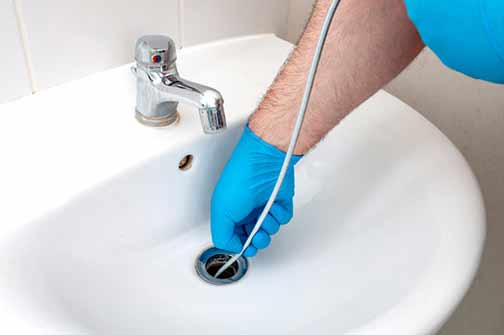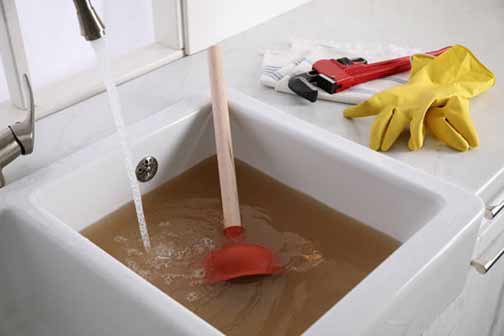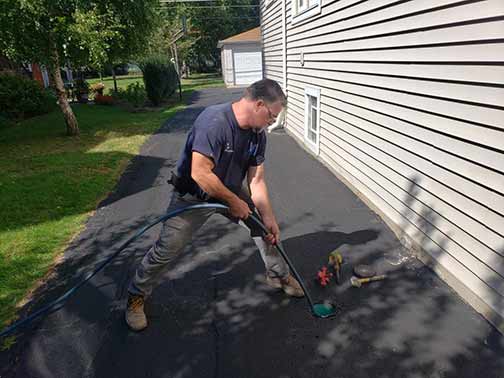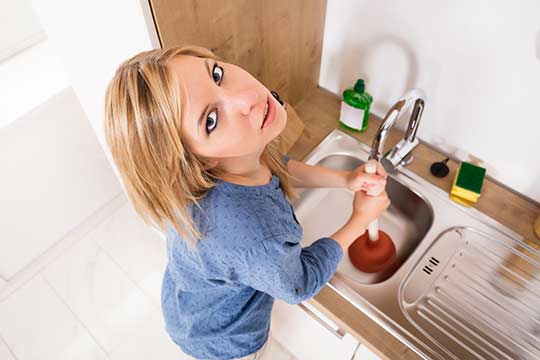The Importance of Regular Drain Cleaning for a Healthy Plumbing System
Regular drain cleaning is crucial for maintaining a healthy plumbing system. Over time, debris, grease, hair, and other substances can accumulate in your drains, leading to blockages and reduced water flow. These blockages can cause unpleasant odors, slow drainage, and even serious plumbing issues that require costly repairs. By regularly cleaning your drains, you can prevent these problems and ensure that your plumbing system functions smoothly. In addition, regular drain cleaning can help you avoid emergency plumbing situations, which can be both inconvenient and expensive.
Understanding the Causes of Drain Blockages
Drain blockages can be caused by a variety of factors. Common culprits include grease and oil buildup, hair, soap scum, food particles, and foreign objects that accidentally find their way into the drains. In addition, mineral deposits from hard water can accumulate over time, further contributing to blockages. Understanding these causes can help you take preventive measures and keep your drains clean. For example, being mindful of what you pour down the drain and using drain screens can help reduce the risk of blockages.
Signs that Your Drains Need Cleaning
There are several signs that indicate your drains may need cleaning. Slow drainage is one of the most common indicators, as it suggests that there is a buildup of debris in the pipes. Unpleasant odors emanating from the drains can also signal a blockage. Additionally, if you notice gurgling sounds coming from your drains or water backing up in sinks, tubs, or toilets, it’s time to clean your drains. Ignoring these signs can lead to more serious plumbing issues, so it’s important to address them promptly.
Recommended Frequency for Drain Cleaning
The frequency of drain cleaning depends on several factors, including the age of your plumbing system, the number of occupants in your home, and your usage habits. As a general rule, it is recommended to clean your drains every one to two years to prevent major blockages. However, if you have a large household or frequently use your drains, you may need to clean them more often. Regular inspections by a professional plumber can help determine the optimal cleaning schedule for your specific situation. It’s also a good idea to schedule drain cleaning service as part of your regular home maintenance routine.
DIY Drain Cleaning Methods
There are several DIY methods you can use to clean your drains. One popular method is to pour a mixture of baking soda and vinegar down the drain, followed by hot water. This combination creates a chemical reaction that helps break down debris and clear the pipes. Another method is to use a plunger to dislodge blockages. For more stubborn clogs, a drain snake or auger can be used to reach deeper into the pipes and remove the obstruction. It’s important to use these tools carefully to avoid damaging your pipes.
When to Call a Professional Plumber
While DIY methods can be effective for minor clogs, there are times when it’s best to call a professional plumber. If you have tried multiple methods and the clog persists, it may be a sign of a more serious issue that requires professional attention. Additionally, if you notice recurring blockages or multiple drains in your home are affected, it’s time to seek professional help. A plumber has the tools and expertise to diagnose and resolve complex plumbing problems. They can also provide advice on how to prevent future blockages and maintain a healthy plumbing system.
Preventive Measures to Keep Your Drains Clean
Taking preventive measures can help keep your drains clean and reduce the need for frequent cleaning. Avoid pouring grease and oil down the drain, as they can solidify and cause blockages. Use drain screens to catch hair and food particles before they enter the pipes. Regularly flush your drains with hot water to help dissolve any buildup. By being mindful of what goes down your drains and taking preventive steps, you can maintain a healthy plumbing system. Additionally, educating your household members about proper drain usage can help prevent blockages.
The Benefits of Regular Drain Cleaning
Regular drain cleaning offers several benefits beyond preventing blockages. It helps extend the lifespan of your plumbing system by reducing wear and tear on the pipes. Clean drains also improve water flow and reduce the risk of leaks and water damage. Additionally, maintaining clean drains can enhance the overall hygiene of your home by eliminating foul odors and reducing the presence of harmful bacteria and mold. By investing in regular drain cleaning, you can save money on costly repairs and enjoy a more efficient plumbing system.
Choosing the Right Drain Cleaning Products
When selecting drain cleaning products, it’s important to choose those that are safe for your plumbing system and the environment. Avoid harsh chemical cleaners, as they can damage your pipes and harm the environment. Instead, opt for natural or enzymatic cleaners that break down organic matter without causing harm. Always follow the manufacturer’s instructions and use products as directed to ensure effective and safe cleaning. Additionally, consider using biodegradable products to minimize your environmental impact.
Understanding the Role of Professional Drain Cleaning Services
Professional drain cleaning services offer a thorough and effective solution for maintaining your plumbing system. Plumbers use specialized equipment, such as hydro-jetting and camera inspections, to identify and remove blockages. A hydro jet drain cleaning service uses high-pressure water to clear debris and clean the pipes, while camera inspections allow plumbers to visually assess the condition of the pipes and identify any issues. These services provide a deeper level of cleaning and can help prevent future problems. By scheduling regular professional drain cleaning, you can ensure that your plumbing system remains in optimal condition.
Long-Term Maintenance Tips for Your Plumbing System
In addition to regular drain cleaning, there are other maintenance tips you can follow to keep your plumbing system in good condition. Regularly inspect your pipes for leaks, corrosion, and other signs of wear. Replace old or damaged pipes to prevent leaks and water damage. Insulate your pipes to protect them from freezing temperatures. By staying proactive and addressing issues promptly, you can ensure the longevity and reliability of your plumbing system. It’s also important to schedule regular inspections by a professional plumber to catch any potential issues early.
Conclusion: The Importance of Staying Proactive with Drain Cleaning
Maintaining a healthy plumbing system requires regular drain cleaning and preventive measures. By understanding the causes of blockages, recognizing the signs of clogged drains, and following a recommended cleaning schedule, you can prevent major plumbing issues and ensure the smooth operation of your drains. Whether you choose to tackle drain cleaning yourself or hire a professional plumber, staying proactive is key to maintaining a healthy and efficient plumbing system. By investing in regular drain cleaning and maintenance, you can enjoy peace of mind and a more reliable plumbing system.



